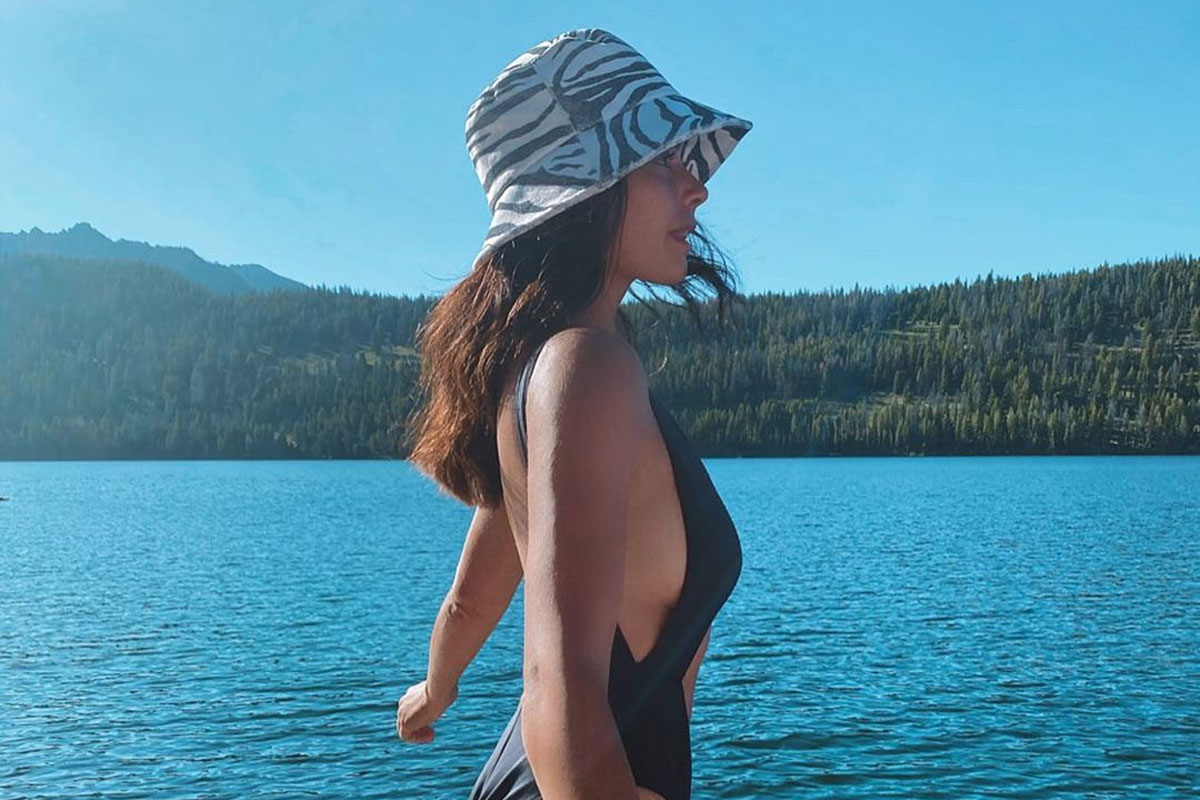Is Instagram the new Sistine Chapel? If a tree falls in the woods and no one live streams it did it really happen? Do influencers have a moral obligation to “keep it real”?
Many complicated questions, few satisfactory answers.
That in mind: no one portrays exactly who they are on social media. Unless you’re a gritty comedian (in which you still play up your life, just in this case the bad aspects), it’s pretty standard to curate things for the better.
Some argue this is simply an extension of everyday life (you don’t go around telling supermarket checkout scanners your life story). Others argue it is a toxic vortex of crushing expectations, ruining our mental health (initiatives like R U Ok? Day suggest perhaps the two aren’t mutually exclusive).
DMARGE spoke to Monika Clarke, an Australian model based in New York, to understand how social media has become this “modern take on blockbuster movies” and the “warped reality” which leaves “someone left feeling lonely and misunderstood, while at the same time living a crazy blessed and cursed lifestyle, while fans watch on wanting to be them or be with them.”
View this post on Instagram
Though there’s undoubtedly some truth to this, opening up about how “Instagram isn’t real” has become such a clichéd thing to do it’s now – in many people’s eyes – rather than a brave, industry-leading thing to do – simply a marketing move for shameless clout clappers looking to assuage their own conscience and make a buck at the same time.
That’s the cynic’s take, anyway.
Clarke recently helped us add some nuance (and real-life experience) to the discussion, relaying to DMARGE what it’s really like to be a model, and run a high profile Instagram account, in The Big Apple.
According to Clarke, curating your image on Instagram isn’t inherently evil: “everyone can create their own personal brand, but it doesn’t mean that’s who they actually are.”
“I get that social media is a job for some people and I think so many others forget that.”
“Do I share all my hardships in a raw form on social media? Hell no. Should I? I don’t even know. I do try to be authentic in everything I post. I take images in the moment and share those.”
View this post on Instagram
“There are people who gain a following for being true to who they are and they are a breath of fresh air. But remember: it’s still their highlight reel.”
“I don’t care for followers like a lot of others do,” Clarke added. “I don’t post half-naked photos all the time knowing that would gain me more followers. It’s not what I care about. I try and keep my image as real as I can. But people probably think I live the most glamorous and easy life.”
“Am I blessed? Yes! Is my life as easy as it seems on social? No! We all have things we are dealing with. We don’t all choose to showcase it and that’s ok. Everyone is dealing with something. So be kind. I am lucky that I don’t get much negativity online. But I know that I am not that controversial.”
That said, Clarke admits there are problems that arise from this culture: “I’ll be the first to say that social media is fake and misleading.”
“It is so hard to gauge someone’s personality or character based off their Instagram. I know influencers who seem so down to earth and amazing on their socials and when you get to know them they are rude, full of themselves and actually have no sense of humour.”
“Then there are people on social who come across a lot more reserved and maybe even boring, but in real life they are some of the most charismatic and inspiring people I know.”
“Everyone edits their images, everyone uses filters, is it healthy? The plain truth is no; no it is not. We are all caught up in an addiction without even admitting it. The more followers someone gets, the more pressure they feel. They get more love and hate at the same time. It’s a lot to deal with.”
View this post on Instagram
“Then all of us are sitting there staring at a beautiful face or body on a screen wishing we were more like that. They’re [the influencers] not even like that. And then when we realise that, we judge that person for not being perfect. It’s a vicious cycle. It’s a cruel world. But no one is crueler to ourselves than us. So I think the answer really begins with self-love. Easier said than done I know.”
“My honest advice is to try to look at social as a form of expression or art, not a reality.”
Maybe Instagram is the Sistine Chapel of the 21st century after all.
